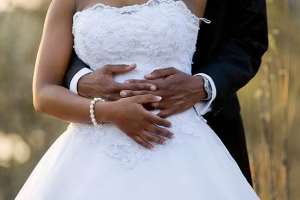
CHOOSE WISELY — WE ONLY GET TIME AND CHOICE
As another year ends and a new one begins to emerge, one thing becomes clearer than ever: life is driven by two forces — Time and Choice.

There is a popular saying, “Do me I do you, God no go vex” that explains why it seems so easy to feel justified when you treat someone the way you’ve been treated. In this part of the world, this saying is not only being sung as a song but it is also believed and lived by. Generally, it is no longer strange to see people going down the path of vengeance instead of forgiveness.
What is Unforgiveness?
Unforgiveness arises when you’ve been hurt in words or actions, physically or emotionally, and find it difficult to let go of the pain. Often, unforgiveness leads to retaliation and justification of such.
But the peril that lurks behind unforgiveness is boundless. It is a venom; a dangerous poison that can destroy anything and leave no remains. Above all, unforgiveness puts both the unforgiving and the offender in bondage.
Is it easy to forgive? No, it is not. But it is easier and better to forgive than not to. When it is hard to forgive, as it sometimes is, ask God for grace to help you forgive.
What is Forgiveness?
Forgiveness is both in words and actions. In other words, you cannot forgive and act on the contrary. This doesn’t mean that you become oblivious to the fact that you were hurt by the other person. Forgiveness is not living in denial, tolerating abusive behavior, or staying in unsafe relationships. Forgiveness is acknowledging that you were hurt, angered, or offended by the other person, but you are willing to relinquish the power to retaliate and release the negative thoughts or feelings that accompanied the hurt caused by that person. It is about making a choice not to treat the other person the way you were treated and finding a way to move on and heal!
How Do You Do This?
Is forgiveness not easier preached than done? How can I ask you to forgive the person that constantly lets you down, and abuses you emotionally and sometimes physically? In what way would you be able to forgive when you are angry, hurt, or treated horribly? How can you forgive the person that broke your heart and the vows and promises they made to you? How is forgiveness possible when the other person doesn’t want anything to do with you?
People do awful things that could cause you to dread the thought of forgiving or forgetting. The desire for revenge could be understandably appealing because the people that hurt us the most are the ones we love most. I have realized that the depth of hurt is determined by the closeness of the person to her heart. This explains why the pains inflicted by very close relations, especially spouses, can rip the heart. Yet, those that hurt us the most deserve our forgiveness even more! They may be undeserving, but we must understand that forgiveness is for us and should be given freely. Forgiveness, unlike a trust, cannot be earned.
Treading the Path of Forgiveness
Forgiveness brings healing to the heart and strength to relationships. Couples in a love relationship are more prone to hurt than any people in other types of relationships. Likewise, some measures can be applied in other relationships that cannot work for a marriage.
This is because marriage is a close union between two imperfect people. The best people are still with flaws. One would think that both individuals becoming one in marriage (because of their love for each other), is enough reason to never hurt one another or find it easy to forgive themselves when they hurt. Realistically, this is not the case. Marriage does not eradicate the inadequacies of the individuals; rather, it brings those flaws to the open since there is no hiding place in marriage. Sometimes, your partner hurts you badly and deeply. Despite the depth and volume of hurt, you can grow stronger by embracing forgiveness.
Hence, forgiveness should be practiced ceaselessly.
How to Practice Forgiveness
Forgiveness is one thing and tolerating dangerous behavior is another. Do not tolerate or justify being in an abusive relationship. Seek help and stay safe even if it means staying apart from the abusive partner. It is better to be alive than dead. This doesn’t mean that the abused should not forgive. It is to allow a change of behavior from the other person.
Reconciliation is a journey; forgiveness is the conveyor. Mistakes are often catalysts in the progress wheel. In other words, offenses will always come even from the person we love most, but we need to travel the road of reconciliation by forgiving each other. Therefore, couples are encouraged to frequently use the word ‘sorry.’ The success of your union as husband and wife is largely dependent on the number of times you are willing to say sorry to each other and mean it.
One of my counselees said she wanted to marry someone who would never hurt her and I told her she was not ready to marry. If you are considering marriage or you are already married, you should be prepared to be hurt. But you should also be prepared to forgive your partner and yourself and continuously live in that forgiveness.
You must love each other to the extent that saying sorry and meaning it should not be burdensome. Do not let ego deprive you of the peace and harmony designed for your union. Forgiveness stems from acknowledging the wrong done, expressing it in words, and taking steps to make things better.
One of the things that hurt does is destroy trust, but when the offending partner has apologized, healing and restoration of trust could begin.
Take cognizance of your partner’s personality while reconciling. Some people find it difficult to accept an apology, while some give a lot of weight and meaning to it. The most important thing is for couples to apologize for the wrong done, mean it, and plan not to repeat the misdeed. Then, forgiveness can take its full course.
Practice forgiveness in its true sense. You must have heard that “Holding a grudge is like drinking poison and then hoping the other person dies.”
When you say you have forgiven your partner, it means you are willing to get back to where you were before the offense. You cannot forgive and keep the other person at arm’s length or create a boundary. Ultimately, forgiveness leaves no gap. When you forgive, you are giving trust a chance. This will eventually help you restore your lost bond, or even strengthen it further.
Also, you cannot forgive without being ready to talk about it. Talking about offense is a two-edged sword: the offender realizes the wrong done while the offended find relief. Most importantly, after forgiveness, talk and rebuild trust so that your relationship can enjoy freshness again. It may not be easy but it holds the promise of a vibrant friendship.
Forgiveness vs Forgetting
The level of hurt, the number of occurrences, or the persons involved may determine the difficulty faced in forgetting a misdeed. It is not unusual that a person forgives but still find it difficult to forget the offense. This could make the offender wonder if they had been forgiven.
While forgetting entails forgiveness, it takes longer. The offended should make effort to forget the incident as a way of moving forward. Instances of betrayal and physical or emotional hurt are different levels of hurt that might have left a scar on the heart or the body of the offended. This takes time and most importantly God to heal. The offender needs to know that only the offended knows the depth of the hurt. It is understandable and even expected that it takes time to trust someone again. But forgiveness shouldn’t take time, it should be instant!
Why You Should Forgive
The ability to exercise forgiveness and forget the hurt is the key to a lasting relationship. Our differences, expectations, frailties, etc. abound and will always show up in our union. You may be the offended today, but the offender tomorrow. Therefore, you must forgive and also make every effort to forget to give peace a chance in your relationship. According to Paul Boese “Forgiveness does not change the past, but it does enlarge the future.”
Forgiving and forgetting are extremely advantageous to your health as a person, that of your partner, and consequently your relationship. Your partner and relationship are beyond keeping scores wrong. Forgiveness is therapeutic; it opens up opportunities to enjoy life for a longer time.
Lastly, this may be hard, but practicing forgiveness in advance is a great preparation against future hurt. It guards against unhealthy grudges or harboring resentments. It helps in focusing more on the things that will improve the relationship, and efforts in maintaining a positive and healthy relationship.
Forgiveness is an attitude, cultivate it. Romance may bring two people together but when challenges come, it is the decisions they make that keep them together or tears them apart. Lasting love requires deciding to forgive daily and at all times.

As another year ends and a new one begins to emerge, one thing becomes clearer than ever: life is driven by two forces — Time and Choice.

This post unpacks the deep cultural roots behind this silence, the heavy toll it takes, and how therapy, grounded in the African experience, creates a safe space for men to unlearn, unpack, and heal.

There’s a growing narrative, whispered in private circles and echoed on social media platforms: “Marriage is outdated.” But here’s the truth—marriage isn’t dead;

The phrase, “Las las, everybody go dey alright,” has become a national anthem for coping mechanisms or resilience in Nigeria whenever things go south.
20c, Estaport Avenue, Soluyi, Gbagada, Lagos.
wwww.talkspace.ng
(+234) 809-993-1039
[email protected]
© 2023 Talk Space Counseling.